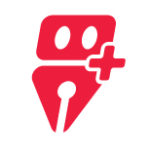Completing class 12 is one of the most crucial milestones in a student’s academic journey. It not only signifies the end of school life but also marks the beginning of career planning and decision-making. This phase is filled with both excitement and anxiety as students are expected to decide what they want to do for the rest of their lives. With an overwhelming number of options across science, commerce, arts, and vocational streams, it’s easy to feel unsure. But with proper guidance and awareness, one can move in a direction that aligns with their interests, strengths, and long-term goals.
Read:- Best Agriculture Courses After 12th
Understanding Your Interests Before You Choose
Before jumping into college applications or entrance exams, students should take time to evaluate what excites them. Are you someone who enjoys problem-solving and mathematics? Or do you feel more inclined towards creativity and communication? Perhaps biology fascinates you, or maybe you’re more inclined toward business and economics. This kind of introspection can help narrow down the options and reduce confusion.
Many students follow the herd or parental pressure without fully considering their preferences. This often leads to dissatisfaction later in life, resulting in course changes or career switches. On the other hand, those who align their academic choices with their passion tend to enjoy better satisfaction, performance, and job outcomes.
Science Stream: Beyond Just Medicine and Engineering
Science continues to be a popular stream due to its wide scope and the perception of high employability. The most common choices within science are engineering and medicine, but the stream is not limited to just these. Students who have studied physics, chemistry, and mathematics (PCM) can look at fields like data science, computer applications, software development, architecture, aviation, defence services, and space research.
Those with a biology background (PCB) can opt for not just MBBS and BDS, but also courses in biotechnology, microbiology, physiotherapy, pharmacy, nutrition, forensic science, and agricultural sciences. Additionally, interdisciplinary fields like bioinformatics and genetic engineering are emerging rapidly and offer challenging career paths.
Commerce Stream: More Than Just Accounting
Commerce students often hear about B.Com and CA as the most viable career routes. While these are excellent choices, the field offers much more. Students can pursue degrees in economics, business administration, finance, international trade, banking, or actuarial science. For those interested in law, an integrated BBA+LLB or B.Com+LLB can open doors to corporate legal jobs.
Marketing, human resources, supply chain management, and entrepreneurship are other dynamic fields where commerce graduates can build fulfilling careers. Furthermore, with the global rise of startups and fintech, new roles are opening up in investment banking, stock market analysis, and financial planning.
Arts/Humanities Stream: A World of Possibilities
The arts stream is often underestimated, but it offers a diverse range of career choices that are both meaningful and high-paying. Students with backgrounds in literature, history, political science, psychology, sociology, and philosophy can pursue careers in teaching, research, public administration, journalism, social work, writing, design, and media production.
With the changing landscape of the job market, even technology companies are hiring graduates from the humanities for roles in communication, ethics consulting, policy research, user experience, and behavioural science. Those interested in public services can also appear for civil service examinations or enter the field of diplomacy through foreign service preparation.
Vocational and Skill-Based Courses: Job-Oriented and Practical
Not everyone needs a traditional college degree to succeed. Vocational training and skill-based education can lead to quick employment and self-reliance. Courses in fashion design, graphic design, animation, web development, digital marketing, interior design, hospitality management, travel and tourism, aviation, and sports management are gaining popularity.
Additionally, polytechnic diplomas and short-term certifications in electrical work, automobile repair, or computer hardware are valuable for those who wish to start earning early or work in technical fields. These paths are particularly suited for students who want to avoid spending years in academic settings and prefer hands-on learning.
Medical vs. Non-Medical Careers in Science: Know the Difference
Medical students often aim for MBBS or BDS, which require years of intense study. But for those who want to stay in the health domain without becoming a doctor, there are several options: nursing, physiotherapy, radiology, optometry, and public health, among others. These roles are vital in healthcare systems and offer rewarding professional lives.
Non-medical students, especially those from PCM, can pursue engineering branches such as mechanical, civil, electrical, and computer science. However, newer domains like AI, robotics, environmental science, and quantum computing are beginning to offer strong career opportunities with global relevance.
Professional Courses and Competitive Exams
Some students opt for professional qualifications that follow specific entrance exams. For instance, engineering aspirants take JEE, while medical students prepare for NEET. Those interested in fashion and design may appear for NIFT or NID. Law aspirants take CLAT, while hotel management students appear for NCHMCT JEE. These entrance exams help secure admissions in reputed institutions, which often play a big role in shaping future opportunities.
For commerce students, competitive exams like CA Foundation, CS Foundation, and CMA are popular. Those aiming for government jobs may begin early preparations for SSC, banking, or UPSC examinations.
Career Paths After 12th With Arts
It’s a myth that only science and commerce offer financial security or prestige. Today, several students from arts backgrounds are achieving professional success in psychology, advertising, media, filmmaking, photography, foreign languages, content creation, publishing, and public policy.
For example, a student with a psychology background can go into counselling, therapy, HR, or mental health advocacy. Language students can build careers in translation, interpretation, teaching abroad, or working with global organisations. Creative individuals can explore storytelling, scriptwriting, or editing across platforms from cinema to publishing.
New-Age Careers and Interdisciplinary Options
With the changing economy and rise of digital ecosystems, new-age careers are emerging that do not strictly fall into traditional categories. These include game design, influencer management, ethical hacking, UI/UX design, podcasting, social media strategy, and online education content development.
Students today are no longer bound by stream limitations. A commerce student can pursue media, and a science student can enter finance. Courses like liberal arts allow students to study multiple disciplines at once, building flexibility and broader skill sets.
How Parents Can Support the Decision
Parents play a vital role in career decision-making. While their experience is invaluable, it’s important they avoid projecting their own unfulfilled ambitions onto their children. The best support they can offer is through listening, encouraging exploration, and arranging professional career counselling if needed.
Involving children in discussions, showing them career stories of diverse people, and supporting their choices—even if unconventional—can go a long way in building confidence and responsibility.
Importance of Career Counselling
Sometimes, even the most self-aware student can struggle to choose from the multitude of available options. This is where professional career counselling makes a difference. By assessing aptitude, personality traits, interests, and market trends, counsellors help students make decisions that are well-informed and future-ready.
Career tests, one-on-one sessions, and exposure to career maps can prevent wrong decisions and unnecessary course switches. Many educational institutions now offer career guidance as part of their curriculum, and online platforms have made it accessible even in remote areas.
Financial Considerations in Career Planning
It’s important to factor in the cost of education, especially if the chosen path involves years of study. Some careers may require investment in degrees, internships, certifications, or coaching. Students and parents should plan budgets accordingly, and also consider scholarship opportunities, government subsidies, or education loans where necessary.
At the same time, students must understand that expensive education doesn’t always guarantee success. Skill, persistence, and adaptability are often bigger factors in long-term success than the institution name or fee structure.
Conclusion: It’s Not a One-Time Decision
Choosing a career after 12th is an important decision, but it’s not permanent. Many people change career paths as they grow, gain experience, or discover new interests. The key is to start somewhere, based on current understanding and preferences, and be ready to adapt with time.
What truly matters is building a mindset of curiosity, lifelong learning, and resilience. Whether you take a traditional route or a non-conventional one, the possibilities are plenty. The world today needs engineers, artists, analysts, teachers, designers, researchers, and creators in equal measure. Follow what feels right and be open to learning along the way.




Comments
0 comments